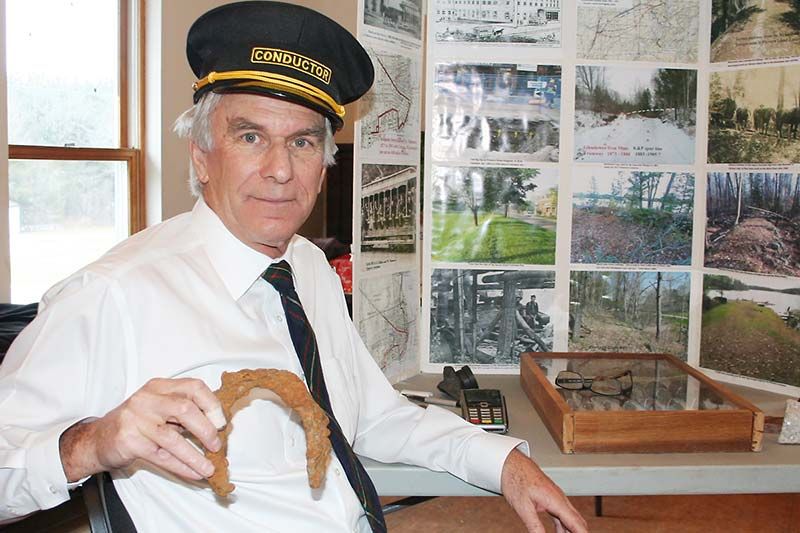Craig Bakay | Feb 28, 2018
The Bedford District Historical Society invited the public to the Bedford District Historical Research Centre (aka Glendower Hall) last Saturday as they’ve done for the past seven years or so.
President Glen Stinson said the archives have experienced “significant growth from year to year” but what they really need is some bodies to help out with the archiving process.
“People do volunteer family pictures and we’ve just received eight family trees,” Stinson said. “And while we appreciate the pictures and documents, what we’d really like are copies.
“We’re more interested in the information than the actual document.”
They do try and laminate as much as possible and Stinson encourages everyone to have their family documents laminated for preservation.
But . . .
“Like every organization, we need more bodies,” said Coun. Pat Barr, also a Society member. “Many are interested but when it comes to the nitty-gritty . . .”
One of the more interesting displays at this year’s gathering came from Steven Manders, who wrote The First Spike, a history of railways in the area.
While he’s always interested in railway information and can spin a good yarn on the subject (his theories on the connections between the K & P Railway and K & P iron mines come to mind), he’s recently become interested in how it all relates to logging in the area.
“You see this horseshoe?” he says, pointing to an old, rusted and corroded horseshoe that’s kinda small. “This didn’t come from a Clydesdale.
“It’s (probably) from a Canadian horse, a smaller breed that was tough enough to withstand Canadian winters.”
Manders said the breed could be set loose in the winter and actually fend quite well for themselves.
“They couldn’t bring in enough hay and oats to feed them so they’d just browse for themselves,” he said.
And that made them perfect for logging, which was huge in this area, he said.
“In the 1800s, more than half of the able-bodied men were working in the lumber industry in the summer,” he said. “You can’t work the fields in the winter.
“If they could bring a horse with them to the logging camp, they got more money so a lot of them had these horses.”
More Stories
- Dry Conditions Spark Fires in Fields and Forests
- 143rd Maberly Fair
- Local Seniors Medal at OSGA 55+ Provincial Games
- Seventh Town Serenades Sharbot Lake
- Brass Point Bridge Closure Leaves Commuters Behind
- Wild Art Walk Call For Submissions
- Three Dwelling Limit Coming For Lots in North Frontenac
- Wildfire in the 1000 block of Rutledge Road - Township Says Fire Now "Under Control"
- Verona and Sydenham Ballpayers Win National Championship With Kingston Colts
- Sweet Music and Some hard Truths At Blue Skies MusicFestival

